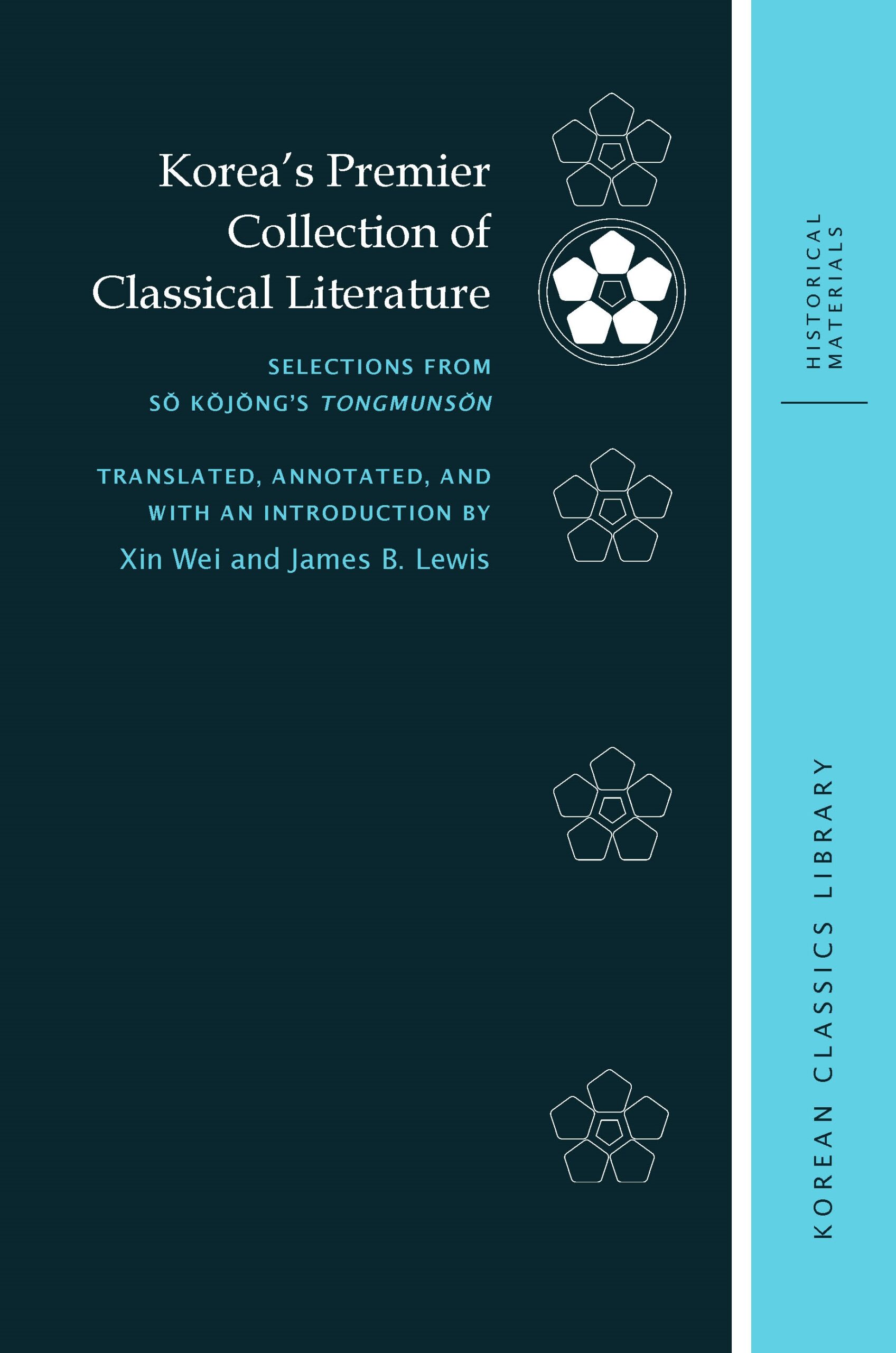Korea’s Premier Collection of Classical Literature: Selections from Sŏ Kŏjŏng’s Tongmunsŏn
- About the Book
-
This is the first book in English to offer an extensive introduction to the Tongmunsŏn (Selections of Refined Literature of Korea)—the largest and most important Korean literary collection created prior to the twentieth century—as well as translations of essays from key chapters. The Tongmunsŏn was compiled in 1478 by Sŏ Kŏjŏng (1420–1488) and other Chosŏn literati at the command of King Sŏngjong (r. 1469–1494). It was modeled after the celebrated Chinese anthology Wen Xuan and contains poetry and prose in an extensive array of styles and genres.
The Translators’ Introduction begins by describing the general structure of the Tongmunsŏn and contextualizes literary output in Korea within the great sweep of East Asian literature from the eighth to the fifteenth centuries. The entire Tongmunsŏn as well as all of the essays selected for translation were written in hanmun (as opposed to Korean vernacular), which points to a close literary connection between the continent and the peninsula. The Introduction goes on to discuss the genres contained in the Tongmunsŏn and examines style as revealed through prosody.
The translation of two of these genres (treatises and discourses) in four books of the Tongmunsŏn showcases prose-writing and the intellectual concerns of the age. Through their discussions of morality, nature, and the fantastic, we see Daoist, Buddhist, and Confucian themes at work in essays by some of Korea’s most distinguished writers, among them Yi Kyubo, Yi Saek, Yi Chehyŏn, and Chŏng Tojŏn. The translations also include annotations and extensive cross-references to classical allusions in the Chinese canon, making the present volume an essential addition to any East Asian literature collection.
- About the Author(s)
-
Xin Wei, Translator
Xin Wei is a Korea Foundation postdoctoral fellow in the World Languages and Literatures Department, Boston University.James B. Lewis, Translator
James B. Lewis is an associate professor in Korean history, Oriental Studies, University of Oxford, and a fellow of Wolfson College.John B. Duncan, Series Editor
John B. Duncan is professor emeritus in the Department of Asian Languages and Cultures, UCLA.Namhee Lee, Series Editor
Robert E. Buswell, Jr., Series Editor
Robert E. Buswell, Jr. holds the Irving and Jean Stone Endowed Chair in Humanities at the University of California, Los Angeles (UCLA), where he is also Distinguished Professor of Buddhist Studies in the Department of Asian Languages and Cultures and founding director of the university’s Center for Buddhist Studies and Center for Korean Studies.
- Reviews and Endorsements
-
- Korea’s Premier Collection of Classical Literature: Selections from Sŏ Kŏjŏng’s Tongmunsŏn will serve as a useful resource for readers and researchers with a substantial knowledge of pre-modern Korean and Chinese history and literature. It contains short stories, essays, and biographies that can be utilized as primary source documents in post-secondary courses on pre-modern Korean and East Asian social, cultural, and intellectual history. The book will, for the first time in English, introduce the reader to the accounts of Koryŏ and Chosŏn dynasty Buddhist monks and Confucian scholars, engaging critiques on historical figures and philosophies, and explications of Neo-Confucian ideas recorded in the Tongmunsŏn.
—Christina Han, Wilfird Laurier University, Acta Koreana, 23:2
- Korea’s Premier Collection of Classical Literature: Selections from Sŏ Kŏjŏng’s Tongmunsŏn will serve as a useful resource for readers and researchers with a substantial knowledge of pre-modern Korean and Chinese history and literature. It contains short stories, essays, and biographies that can be utilized as primary source documents in post-secondary courses on pre-modern Korean and East Asian social, cultural, and intellectual history. The book will, for the first time in English, introduce the reader to the accounts of Koryŏ and Chosŏn dynasty Buddhist monks and Confucian scholars, engaging critiques on historical figures and philosophies, and explications of Neo-Confucian ideas recorded in the Tongmunsŏn.
- Supporting Resources
-





